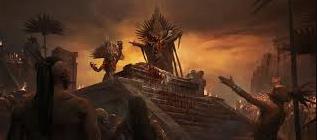The Mirror of Kalandra is more than just a rare item in Path of Exile—it’s the ultimate symbol of wealth, perfection, and power within the game’s complex economy. Its value, use, and scarcity shape not only end-game item crafting but also how players store and exchange wealth, leading to an economic ecosystem that revolves around its allure.
The Apex of Rarity and Value
The Mirror of Kalandra holds legendary status due to its astonishing rarity. With drop rates estimated as rare as one in ten million monster kills, acquiring a Mirror naturally is akin to winning a lottery for most players. This rarity translates directly into staggering market value, with players often trading Mirrors for hundreds of Divine Orbs or Exalted Orbs—the game’s core trading currencies. In some cases, a single Mirror can represent the economic equivalent of a fortune, costing anywhere between $100 and $300 if purchased via third-party sites, or over 200 Exalted Orbs in-game, depending on league and demand. Some players even opt to buy poe 2 currency to help reach these economic heights faster.
Power of Duplication: Why It’s Priceless
What sets the Mirror apart is its unique function: it allows the owner to create a perfect, immutable duplicate of any rare item. This is more than a gimmick; it means that once an item has been crafted to near perfection—a process that itself can consume vast amounts of currency and effort—the Mirror lets you preserve its value forever by creating a second, identical version. Because the duplicated item cannot be altered, only the very best and most coveted gear are mirrored, often representing the pinnacle of what is possible for a given build.
This ability cements the Mirror as the ultimate tool for high-end crafters and traders, enabling them to monetize their expertise by offering Mirror services—letting others duplicate “mirror-worthy” items for a price.
Economic Impact: The Pillar of POE’s Currency System
The Mirror’s role in the market extends beyond its singular use. It’s the “gold standard” of Path of Exile’s economy:
-
Store of Value: Mirrors function as a long-term investment and are often used for wealth storage in a way similar to how gold is held in traditional economies. When inflation affects lesser currencies, the Mirror’s value tends to rise or remain stable.
-
Benchmark Metric: High-value transactions, crafted item valuations, and services in the late game are often denominated in Mirrors or Mirror equivalents, especially when values exceed trade limits or storage caps for lesser orbs.
-
Fractional Trading: Because a single Mirror can be worth hundreds or thousands of other currencies, Mirror shards (which compose a full Mirror) and partial trades become common for very expensive deals.
Market Mechanics: Scarcity Breeds Prestige
Part of why the Mirror rules the market is its intentional scarcity. Only the most dedicated or lucky players ever acquire one, perpetuating demand and a constant upward pressure on price. This means Mirrors are seldom used frivolously; most are either kept as status symbols, traded for vast sums, or consumed in the final crafting of truly perfect equipment. It's no wonder the item is often tied to broader wealth strategies, especially among players who seek out poe 2 currency for sale in bulk to engage in mirror-based trading.
Social Status and Community Influence
Possessing or using a Mirror of Kalandra carries immense prestige. Players who acquire one are viewed as elite, and many famous trade services or crafting empires are built around leveraging Mirrors for profit. This reputation further enhances its economic gravity—driving both aspiration and the flow of currency toward those who control them.
The Mirror of Kalandra is not simply an in-game item; it’s a pillar of Path of Exile’s virtual economy. Its blend of mythic rarity, unique utility, and unparalleled value makes it the axis around which high-tier trading, crafting, and wealth preservation spin. In the end, the Mirror’s influence on gameplay and market behavior is a prime example of how a single, perfectly designed piece of “miraculous” loot can rule an entire game’s economy.

